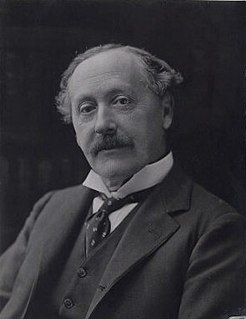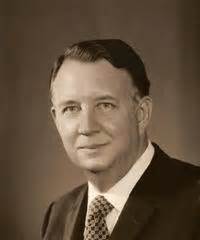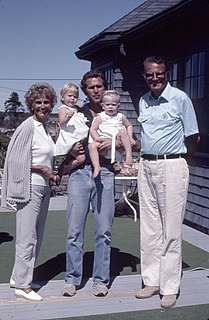A Quote by Simon Greenleaf
But if they are well-founded and just, they can be no less than the high requirements of heaven, addressed by the voice of God to the reason and understanding of man, concerning things deeply affecting his relations to his sovereign, and essential to the formation of his character and of course to his destiny, both for this life and for the life.
Related Quotes
Christianity set itself the goal of fulfilling man’s unattainable desires, but for that very reason ignored his attainable desires. By promising man eternal life, it deprived him of temporal life, by teaching him to trust in God’s help it took away his trust in his own powers; by giving him faith in a better life in heaven, it destroyed his faith in a better life on earth and his striving to attain such a life. Christianity gave man what his imagination desires, but for that very reason failed to give him what he really and truly desires.
All of man's ills are due to his lack of knowing God within him. The perfection of God's universe is founded upon its perfection of Balance. All of man's ills are caused by toxic poisons generated in his body through unbalance affecting his power of control over the functions of his electric body. Man, as an extension of God, is creator of his own electric body. He is master of his electric body to the extent of his knowing the Light of God in him. ... God says to man: »What I do, ye shall do«, but man is unbelieving for long ages.
He is not the soul of Nature, nor any part of Nature. He inhabits eternity: He dwells in a high and holy place: heaven is His throne, not his vehicle, earth is his footstool, not his vesture. One day he will dismantle both and make a new heaven and earth. He is not to be identified even with the 'divine spark' in man. He is 'God and not man.
To live his life in his own way, to call his house his castle, to enjoy the fruits of his own labour, to educate his children as his conscience directs, to save for their prosperity after his death -- these are wishes deeply ingrained in civilised man. Their realization is almost as necessary to our virtues as to our happiness. From their total frustration disastrous results both moral and psychological might follow.
His face set in grim determination, Richard slogged ahead, his fingers reaching up to touch the tooth under his shirt. Loneliness, deeper than he had never known, sagged his shoulders. All his friends were lost to him. He knew now that his life was not his own. It belonged to his duty, to his task. He was the Seeker. Nothing more. Nothing less. Not his own man, but a pawn to be used by others. A tool, same as his sword, to help others, that they might have the life he had only glimpsed for a twinkling. He was no different from the dark things in the boundary. A bringer of death.
The faithful man perceives nothing less than opportunity in difficulties. Flowing through his spine, faith and courage work together: Such a man does not fear losing his life, thus he will risk losing it at times in order to empower it. By this he actually values his life more than the man who fears losing his life. It is much like leaping from a window in order to avoid a fire yet in that most crucial moment knowing that God will appear to catch you.
Dear God, I prayed, all unafraid (as we're inclined to do), I do not need a handsome man but let him be like You; I do not need one big and strong nor yet so very tall, nor need he be some genius, or wealthy, Lord, at all; but let his head be high, dear God, and let his eye be clear, his shoulders straight, whate'er his state, whate'er his earthly sphere; and let his face have character, a ruggedness if soul, and let his whole life show, dear God, a singleness of goal; then when he comes (as he will come) with quiet eyes aglow, I'll understand that he's the man I prayed for long ago.
Our Lord's miracles were all essential parts of His one consistent life. They were wrought as evidences not only of His power, but of His mercy. They were throughout moral in their character, and spiritual in the ends contemplated by them. They were in fact embodiments of His whole character; exemplars of His whole teaching, emblems of His whole mission.

































